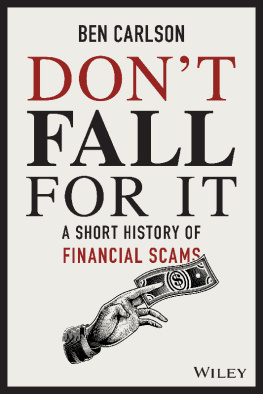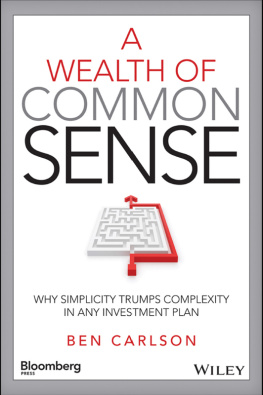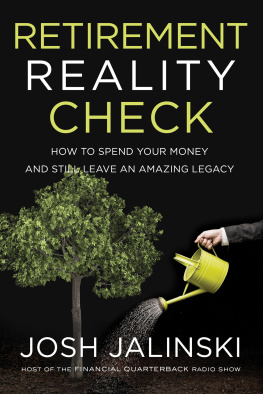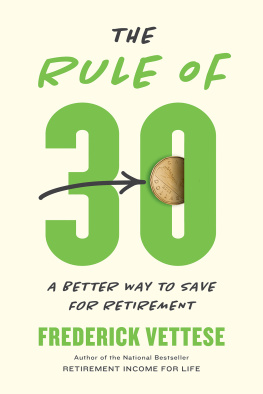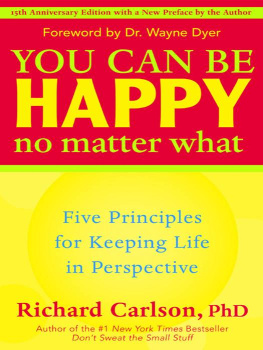Ben Carlson - Everything You Need To Know About Saving For Retirement
Here you can read online Ben Carlson - Everything You Need To Know About Saving For Retirement full text of the book (entire story) in english for free. Download pdf and epub, get meaning, cover and reviews about this ebook. genre: Romance novel. Description of the work, (preface) as well as reviews are available. Best literature library LitArk.com created for fans of good reading and offers a wide selection of genres:
Romance novel
Science fiction
Adventure
Detective
Science
History
Home and family
Prose
Art
Politics
Computer
Non-fiction
Religion
Business
Children
Humor
Choose a favorite category and find really read worthwhile books. Enjoy immersion in the world of imagination, feel the emotions of the characters or learn something new for yourself, make an fascinating discovery.

- Book:Everything You Need To Know About Saving For Retirement
- Author:
- Genre:
- Rating:4 / 5
- Favourites:Add to favourites
- Your mark:
- 80
- 1
- 2
- 3
- 4
- 5
Everything You Need To Know About Saving For Retirement: summary, description and annotation
We offer to read an annotation, description, summary or preface (depends on what the author of the book "Everything You Need To Know About Saving For Retirement" wrote himself). If you haven't found the necessary information about the book — write in the comments, we will try to find it.
Ben Carlson: author's other books
Who wrote Everything You Need To Know About Saving For Retirement? Find out the surname, the name of the author of the book and a list of all author's works by series.
Everything You Need To Know About Saving For Retirement — read online for free the complete book (whole text) full work
Below is the text of the book, divided by pages. System saving the place of the last page read, allows you to conveniently read the book "Everything You Need To Know About Saving For Retirement" online for free, without having to search again every time where you left off. Put a bookmark, and you can go to the page where you finished reading at any time.
Font size:
Interval:
Bookmark:
Everything You Need to Know
About Saving For Retirement
BEN CARLSON
Copyright 2020 Ben Carlson
All rights reserved.
ISBN-10: 9798550659311
Youre On Your Own

A staggering 10,000 Baby Boomers are turning 65 years old on a daily basis from now until well into the 2030s. Thats nearly four million people reaching retirement age annually in the United States. The vast majority of them are ill-prepared for this next stage of their financial lives. Half of all people aged 55-61 in the United States have less than $21,000 saved for retirement. For Americans in the 50-55 age range, half have less than $11,000 in retirement savings. Half of all families in this country have no retirement nest egg to speak of. One-quarter of senior citizens rely exclusively on Social Security to fund their spending needs in retirement while roughly 50% of seniors get at least half of their retirement income from the program.
Young people arent doing much better. More than 40% of those in the 18-29 age bracket have nothing saved for retirement. And those in the 25-44 age bracket have seen their wealth decline as a group anywhere from 25% to 50% when compared to people in the same age range in 1989. In 1990, people under the age of 40 owned 13% of the U.S. stock market. By 2020, that ownership percentage was down to 4%. Millennials also have lower incomes and net worth, on average, than their parents did at the same age.
The causes for these financial issues could be its own book but here are four reasons there is a retirement crisis looming for a large number of people in the United States:
Problem #1. Retirement is still a relatively new concept.
Just 34% of all males lived past their 65th birthday in the year 1870. And for those who did, the vast majority of them still worked, often in back-breaking jobs. The labor force participation rate was an astonishing 88% for those in the 65 to 75 age group back when Ulysses S. Grant was president. About half of all people who lived into their 80s still worked because there was no such thing as retirement for most people.
If you were lucky, retirement might have lasted two to three years towards the end of the 19th century. Most peoples retirement plan was, well, death. As more people began living well beyond their mid-60s, retirement as a concept was born. If your parents or grandparents lived through World War II, its likely they were the first ones in your family to think about retirement as we think about it today. The first wave of retirees had a much different financial arrangement than we have today. Many retirees from previous generations could look forward to collecting a pension and having their healthcare costs covered by their employer in retirement. This is not the case anymore.
There is a double-edged sword of the newfound longevity in the human race. On the one hand, advances in healthcare and technology means most people get to enjoy their time on this planet with loved ones far longer than our ancestors. On the other hand, we now have to make our money last much longer than ever before. When Social Security was first introduced in the 1930s, it was meant to last a handful of years for the majority of recipients. The average time spent in retirement from 1960-1990 was roughly 13 years. Its now over 20 years on average, which means for a large percentage of the retired population its much longer than two decades.
Since the concept of retirement is still relatively new, there are few role models that can prepare you psychologically or financially for this stage in life. Personal finance is one of the most important life skills you can develop yet no one is tasked with teaching you how to do it. Just six states require students to take at least one semester of personal finance courses. They teach other languages in our schools but not the language of money. Most people are flying blind and you only get one shot at the retirement planning process.
Problem #2. Youre on your own.
When Congress passed the Revenue of Act of 1978 to lower tax brackets on individuals, no one could have imagined how it would structurally change the way Americans save for retirement. Deep within this two-hundred-plus page document was a short 900-word section which was added with the intent of limiting executive compensation (Spoiler alert: It did not have that effect).
Ted Benna, an insurance consultant at the time, realized this part of the tax code could be used for both employee and employer retirement contributions in a tax-deferred manner. Bennas discovery was initially used by banks as a way to transfer bonuses to employees in a tax-efficient manner but other companies slowly came around to the idea of a tax-deferred workplace retirement option for their employees. Thus, the defined contribution 401(k) retirement plan was born.
Its a stretch to say everyone was once covered by a pension plan but the numbers were much higher for previous generations. In the early-1980s roughly 60% of all workers in the United States could bank on receiving a pension. Today, that number is closer to 17% and heading lower. Now the majority of workers rely on a 401(k) or other defined contribution retirement plan that theyre forced to manage and fund on their own.
In the early days, roughly 50% of employees were offered access to this type of plan with hopes of reaching a 95% penetration rate. Instead, less than half of all workers are covered by workplace retirement plans today. Just one-third of all U.S. workers are saving in a 401(k) or similar plan.
With fewer pensions and a general lack of personal finance education, youre on your own when it comes to saving and planning out your retirement and not enough people are doing so.
Problem #3. This stuff is simple but not easy.
Golf is simple. All you have to do is line up your stance, bend your knees, take the club back slowly, follow-through and keep your head down while hitting a little white ball. Getting in shape and losing weight is simple. All you have to do is exercise on a regular basis and eat healthy. Building wealth is also simple. Just live below your means, save the difference and invest for the long term.
Many aspects of life can be boiled down to simple principles or steps. So why isnt everyone a scratch golfer walking around with six-pack abs and fabulously wealthy? Because simple is not the same thing as easy. Legendary golfer Bobby Jones once said, Golf is played mainly on a five-and-a-half-inch course, the space between your ears. Dieting and exercise each require an extraordinary amount of willpower and discipline. And getting your finances in order is more difficult than it seems because money impacts so many different aspects of your life.
Getting ahead in life is never as easy as a list of life hacks or motivational quotes set against a beautiful backdrop on Instagram. Saving for retirement is simple but its also exceedingly difficult in that delaying gratification is no fun. Former President Dwight Eisenhower once talked about how he would prioritize his presidential duties after getting elected:
I have two kinds of problems: the urgent and the important. The urgent are not important, and the important are never urgent.
Financial problems that are important - retirement planning, saving, budgeting, etc. - are easy to ignore because they dont become urgent until its too late. Instead, theres a long list of minor items you can check off your list that make you feel like youve accomplished something in the short-run, even if they dont help you to get ahead over the long-run. Its far easier to focus on the short-term and ignore the long term when you dont have an overarching plan in place to guide your actions.
Next pageFont size:
Interval:
Bookmark:
Similar books «Everything You Need To Know About Saving For Retirement»
Look at similar books to Everything You Need To Know About Saving For Retirement. We have selected literature similar in name and meaning in the hope of providing readers with more options to find new, interesting, not yet read works.
Discussion, reviews of the book Everything You Need To Know About Saving For Retirement and just readers' own opinions. Leave your comments, write what you think about the work, its meaning or the main characters. Specify what exactly you liked and what you didn't like, and why you think so.

